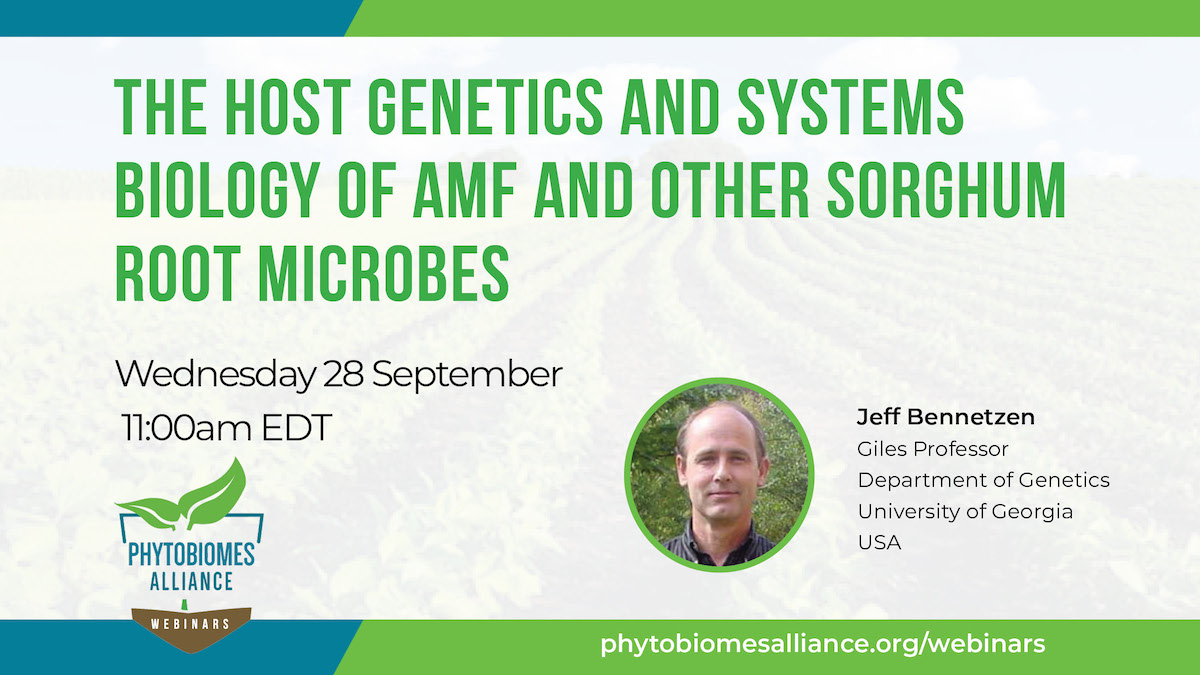
The Host Genetics and Systems Biology of AMF and other Sorghum Root Microbes
September 28, 2022
Location
Online
Presenters
Jeff Bennetzen, Giles Professor, Department of Genetics, University of Georgia
Outline
Arbuscular mycorrhizal fungi (AMF), members of the phylum Glomeromycota, live both inside the plant root and extend into the soil surrounding the plant. Any natural or agricultural field will contain abundant AMF, but only some of these AMF will form productive interactions with plants, and the genotype of the plant is one factor that determines how these interactions develop. The AMF-plant symbiosis has evolved over more than 400 million years, and can enhance the mineral uptake, drought tolerance and disease resistance of their plant hosts. However, some AMF are more antagonistic than beneficial under certain field conditions.
Our research has shown that the diversity of AMF in the soil has been greatly underestimated, and that specific alleles of specific plant genes (identified so far as QTL) are responsible for the attraction/perpetuation of specific genotypes of AMF and other microbes to grass roots. The consistency of these plant::microbe genetic relationships across environmental ranges can be high, and we are now investigating the degree to which they are influenced by dramatic variations in fertilizer inputs and in water availability.
Data from various -omics, GWAS, microscopic and physiological analyses are being integrated into a modeling system that will allow direct experimental prediction/testing to identify plant genes that attract specific AMF interactions, determine their benefits or costs to the biofuel crop sorghum, and l help plant breeders and agronomists use indigenous AMF to improve sorghum productivity.
